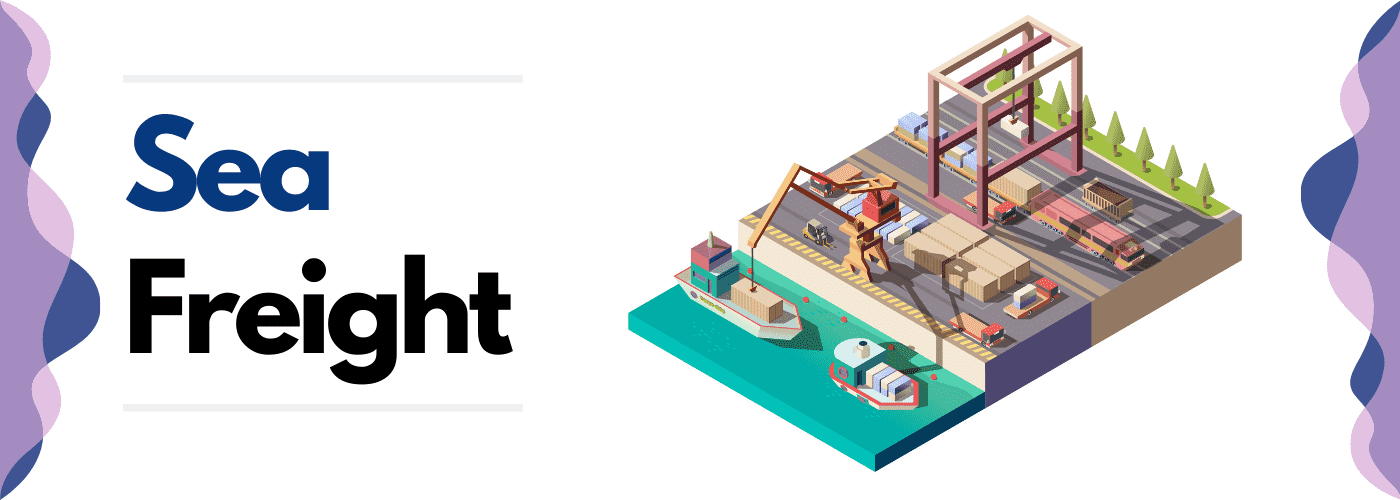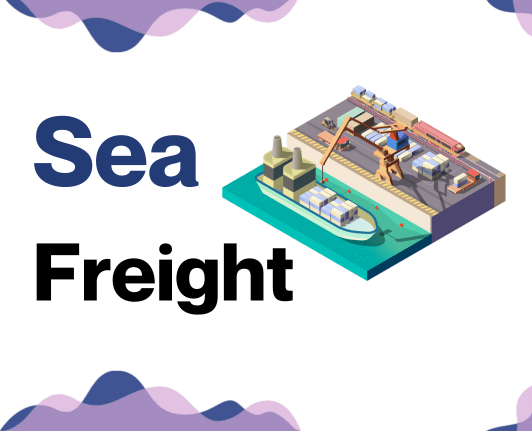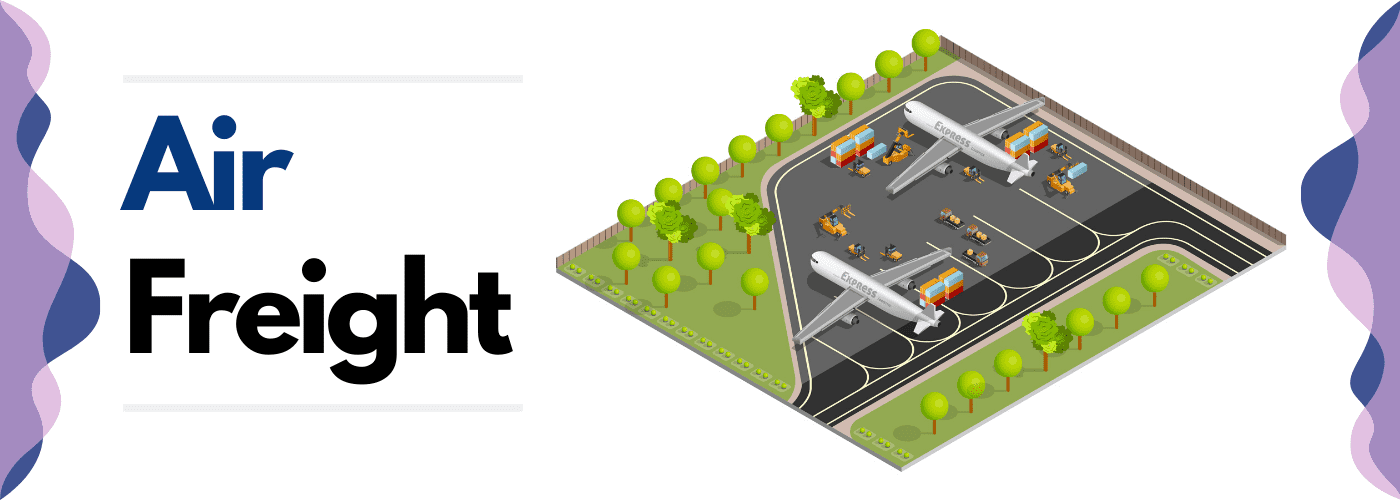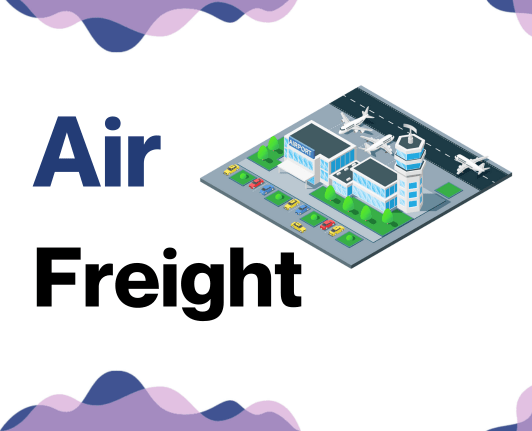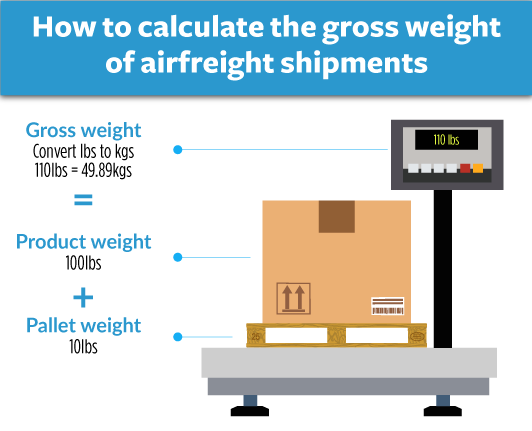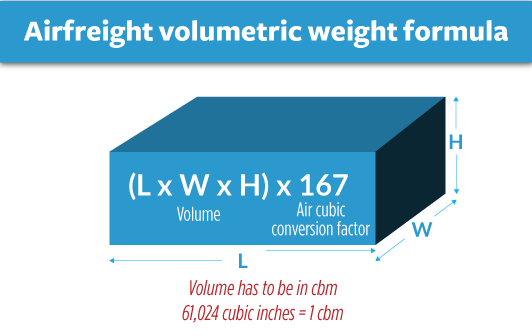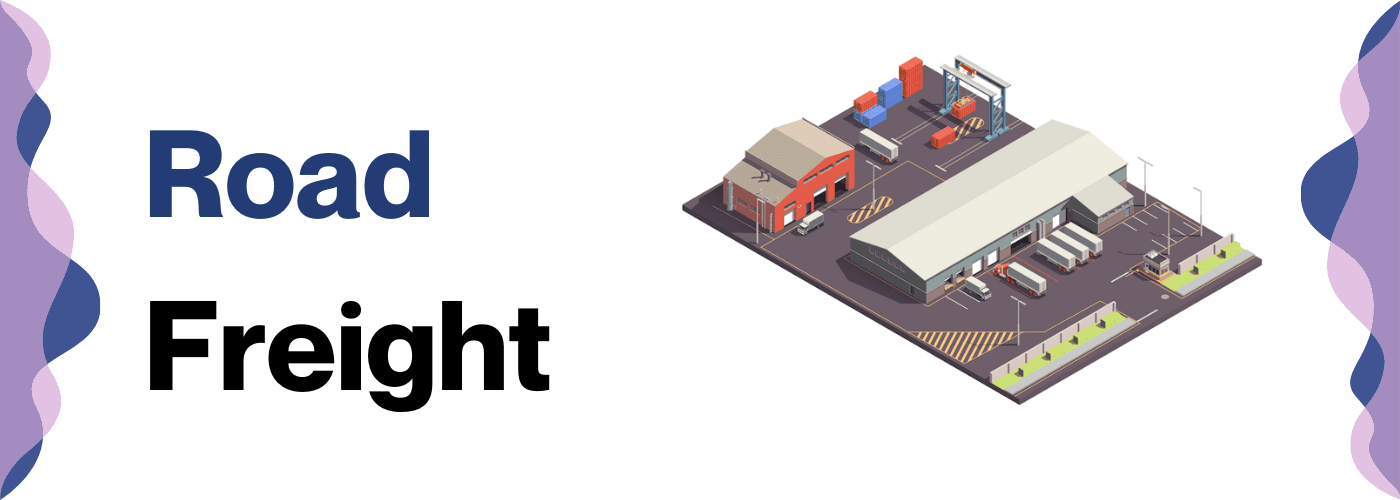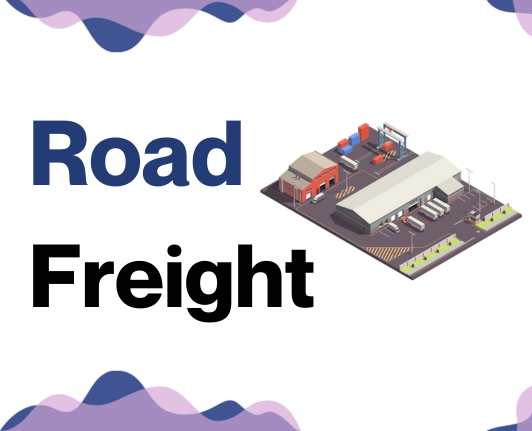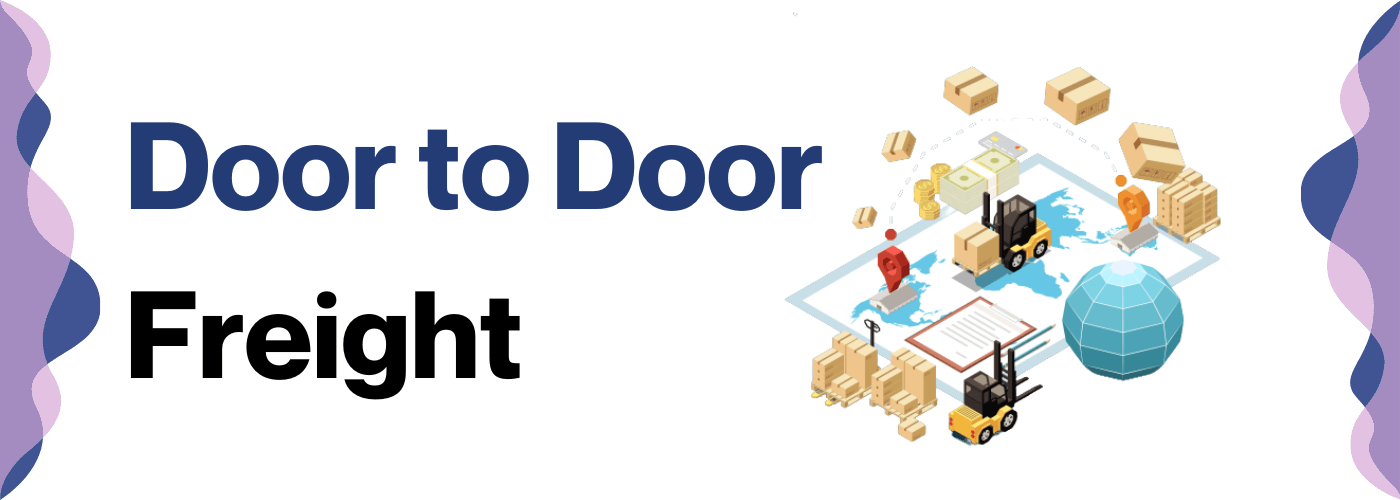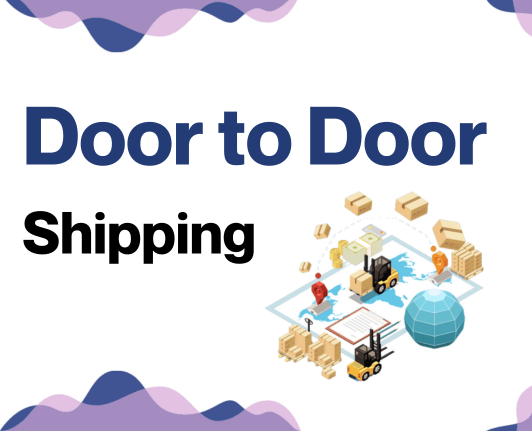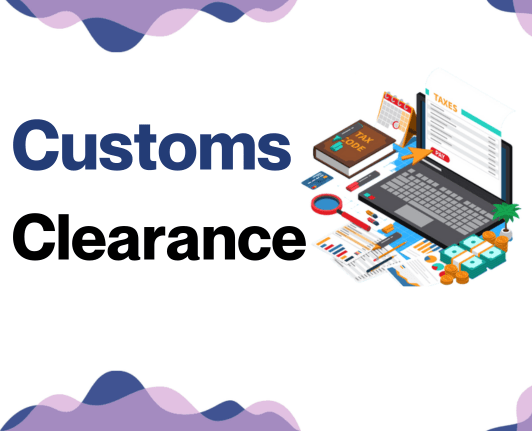Who needs the headache of Portuguese Nata pastries when you can dive into the complexities of freight transport between the UK and Portugal? The world of international shipping can seem as puzzling as a language barrier, with gruesome challenges such as understanding rates, transit times, and customs regulations.
Fear not. This guide will serve as your trusty map, unraveling the intricacies of varied freight options available, customs clearance, intricacies of duties, taxes, and vital advice meant specifically for businesses.
This guide seeks to address these issues head-on, providing valuable insights to smooth your international shipping experience. If the process still feels overwhelming, let DocShipper handle it for you! As professional freight forwarders, we take care of every step, converting your shipping challenges into definite success stories.
Table of Contents
Which are the different modes of transportation between UK and Portugal?
While looking to connect the UK and Portugal with your goods, right transport selection can save you both time and money. Being relatively close, air transport might seem tempting, quick but may cost a pretty penny. Let's say it's like flying first-class. Ocean freight, on the other hand, is more like economy-class, slower but much cheaper.
Then, there’s the reliable always-on-road trucking. Each has its perks; the key is balancing your budget, urgency, and the nature of your cargo. It's almost like choosing the right vehicle for a weekend trip: SUV, sports car, or family van? Your choice depends on the trip's purpose, the same way the transport method depends on your shipment's needs.
How can DocShipper help?
When it comes to shipping goods between the UK and Portugal, entrust DocShipper with the task. Seamlessly manage customs, navigate transportation logistics, and ensure reliable delivery. Don't ponder, be it sea freight, air freight, or customs protocols, our team has the expertise. Need help? Make the move. Ring our consultants for free, or get a fast, complimentary estimate today.
DocShipper Tip: Ocean freight might be the best solution for you if:
- You're dealing with large quantities or oversized items. Sea freight offers a budget-friendly way to maximize space, a particularly useful option given the UK's extensive port network.
- Your shipment isn't on a tight schedule. Ocean transport typically takes longer than air or rail, but it offers reliability.
- Your supply chain involves key ports, allowing you to take advantage of a wide-reaching network of sea lanes.
Sea freight between UK and Portugal
Journeying via the expansive ocean waves, transporting goods from the industrious heart of the UK to sunny Portugal can be quite a voyage! For businesses looking to high-volume trade, these two gemstones of Europe connect through bustling cargo ports like London's gateway to the world, Tilbury Port, and Portugal's biggest port, Sines.
Sea freight leverages the synergy between the UK and Portugal, serving as a cost-effective method for moving truckloads of goods, despite the longer journey times.
Yet, it's no secret that the process is far from smooth sailing. Too often, businesses struggle with complexities ranging from misunderstood paperwork to delays at customs. If you feel tangled in these maritime obstacles, remember: Stick to the best practices, attention to the intricate specifications that can act as your compass.
This guide will be your lighthouse, illuminating the ways to streamline your ocean shipping process. It's akin to making sure you have the right sized sails for the wind, you'll sail ahead seamlessly!
Main shipping ports in UK
Felixstowe Port
Located in the East of England, Felixstowe Port is instrumental in UK's trade, handling over 4 million Twenty-Foot Equivalent Units (TEUs) annually. this port also operates nine berths with the most advanced container handling equipment present.
Key Trading Partners and Strategic Importance: Felixstowe Port has established strong trade relations with major markets across the Americas, Asia, and Europe. The port also has a notable strategic importance given its robust railway network linking it to vital industrial centers across the UK.
Context for Businesses: If you're planning to penetrate the European and American markets, Felixstowe Port plays a significant role given its advanced infrastructure and strong connections across key markets.
London Gateway
Strategically situated on the north bank of the River Thames in the southeast of the country, London Gateway manages a shipping volume exceeding 1.6 million TEUs. It's one of the newest and most technologically advanced deep-sea ports in the UK.
Key Trading Partners and Strategic Importance: London Gateway holds a key position in sustaining trade relationships with Asia, having regular inbound services from key ports across Asia. Its strategic location near the capital city facilitates swift access to consumers across London and South East England, serving millions of consumers.
Context for Businesses: The London Gateway, with its state-of-the-art facilities and vicinity to the capital, is a strategic option for those seeking quicker market access.
Southampton Port
Located in the south coast of England, Southampton Port deals with over 2 million TEUs yearly and is one of the UK's busiest and most successful deep-water ports.
Key Trading Partners and Strategic Importance: Southampton Port is particularly known for strong trading ties across Oceania, South America, and Far Eastern markets. With its advanced maritime services, the port is well-known for handling high-value cargoes like automotive and perishable goods.
Context for Businesses: For businesses importing high-value or time-sensitive goods, Southampton Port can offer highly efficient services given its state-of-the-art facilities and strategic partnerships.
Liverpool Port
Nestled on the west coast of England, Liverpool Port underpins the economy of Northern England, with a shipping volume exceeding 690,000 TEUs every year.
Key Trading Partners and Strategic Importance: Liverpool Port has a rich trading history with North America. This port can uniquely serve both Atlantic coasts due to its excellent geographical advantage.
Context for Businesses: If your business is targeting access to North American markets, Liverpool Port serves as an excellent logistical choice owing to its proximity and longstanding trading history.
Grimsby & Immingham Port
Located in North East England, Grimsby & Immingham Port is prominent for bulk cargo movements, servicing a shipping volume exceeding 54 million metric tons per annum.
Key Trading Partners and Strategic Importance: It's a hub for food, car, and energy industries with key trading partners spread across European and Scandinavian countries.
Context for Businesses: The port is strategically important for businesses dealing with bulk cargo, particularly in food and car industries, and wanting to gain access to European and Scandinavian markets.
Belfast Port
In Northern Ireland, Belfast Port is a pivotal gateway for goods moving across the North and South of Ireland, with a shipping volume of 24 million tonnes.
Key Trading Partners and Strategic Importance: Belfast Port mainly focuses on trade relations within the United Kingdom and Ireland along with European connections.
Context for Businesses: Belfast Port is probably your best bet for businesses aiming to penetrate the intricate markets of United Kingdom and Ireland due to its preeminence and strategic location.
Main shipping ports in Portugal
Port of Leixões
Location and Volume: Found just north of Porto, Leixões is a major hub for Portuguese trade, boasting a shipping volume of around 600,000 TEU per annum.
Key Trading Partners and Strategic Importance: This port maintains strong links with both European and African markets, with Spain, France, and Belgium being key trading partners. The port is vital not only for Portuguese commerce but also shapes national maritime policies due to its size and strategic positioning.
Context for Businesses: If you're considering expanding market reach towards Europe and Africa, Leixões can be your gateway, given its large shipping volume and widespread trading connections.
Port of Lisbon
Location and Volume: Sitting in the heart of the city, the Port of Lisbon is the largest port in Portugal, handling over 11 million tonnes of goods each year.
Key Trading Partners and Strategic Importance: This port particularly strengthens Portugal's ties with Spain, Germany, and Italy. It also upholds a historic relevance as a vital sea route for the Age of Discovery.
Context for Businesses: Should you be thinking about strengthening your supply chain within European markets, the Port of Lisbon's impressive volume and European connections may offer you considerable advantages.
Sines Port
Location and Volume: Located on Portugal's Alentejo coast, Sines Port stands as the largest deepwater port, capable of accommodating large container and LNG Liquefied Natural Gas ships, making it critical for the local energy sector.
Key Trading Partners and Strategic Importance: The port has robust trading relations with Asia, particularly with China, and the Americas, making it strategically important on a global scale.
Context for Businesses: If your enterprise is energy-focused or relies heavily on Asian or American markets, Sines Port becomes a potentially invaluable link given its deepwater features and geostrategic connections.
Port of Aveiro
Location and Volume: Located on the west coast, the Port of Aveiro is a modern port with the capacity to handle large volumes of cargo, amounting to approximately 5 million tonnes annually.
Key Trading Partners and Strategic Importance: The port bolsters Portugal's ties with Spain and France and holds strategic importance for the country's pulp and paper industry.
Context for Businesses: If you’re in the paper industry or focusing on the Iberian market, the Port of Aveiro might serve as an ideal location given its specialization and geographic proximity.
Port of Setúbal
Location and Volume: Located on the northern bank of the Sado River, South of Lisbon, the Port of Setúbal serves as a hub for Ro-Ro roll on/roll off operations, handling approximately 1.8 million tonnes of general cargo per year.
Key Trading Partners and Strategic Importance: The port primarily trades with European nations, especially Spain and Italy. It is also strategically significant for Volkswagen AutoEuropa due to its role in automotive logistics.
Context for Businesses: If your operations involve vehicle transportation or include significant business within Southern Europe, the Port of Setúbal could play an integral part in your logistics chain.
Port of Figueira da Foz
Location and Volume: Located centrally on Portugal's west coast, the Port of Figueira da Foz is a multipurpose facility handling about 2.5 million tonnes annually, specializing in forestry products and grain.
Key Trading Partners and Strategic Importance: Trading chiefly with Spain, Germany, and Italy, the port serves as a key route for the forestry and agriculture sectors.
Context for Businesses: If your business revolves around forestry or agriculture and targets European markets, the Port of Figueira da Foz’s specialized facilities make it an appealing option.
Should I choose FCL or LCL when shipping between UK and Portugal?
Making the call between consolidation and full container shipping may seem daunting, but it's a crucial point in your UK-Portugal delivery plan.
Each option carries its own cost, delivery speed, and success factors. Fear not - understanding their ins and outs installs you in the driver's seat, ready to streamline your shipping strategy. In this guide, we'll unpack both so you can choose confidently.
So, whether you're shipping whisky from London or cork from Lisboa, let's dive into aligning your unique needs with the right sea freight choice. Get set for a smooth sailing journey!
LCL: Less than Container Load
Definition: Less than Container Load (LCL) shipping refers to a shipment method for smaller volumes of cargo. It involves consolidating goods from multiple shippers into a single container for more efficient shipping.
When to Use: LCL is an ideal shipping option if your cargo volume is less than 13/14/15 cubic meters (CBM). It offers the flexibility to pay only for the space used in the container, making it a more cost-effective method for small-volume shipments.
Example: Take a company shipping a pallet of merchandise weighing 600 kg with dimensions of 1x1.2x1 metres - equivalent to about 1.2 CBM. Given the small amount, LCL shipment would be the most economical as the company only pays for the space this pallet occupies in the container.
Cost Implications: LCL freight generally has a lower upfront cost as you are not paying for unused space in a full container. However, it may include extra charges like consolidation and deconsolidation fees. These costs are usually lower than the fixed cost for a full container, so for low volume cargo, LCL freight often results in overall savings.
FCL: Full Container Load
Definition: FCL (Full Container Load) shipping is an ocean freight transportation method where a 20'ft or 40'ft container is used solely for your goods.
When to Use: This option is perfect if your cargo volume is more than 13/14/15 CBM. FCL offers safety as the container remains sealed from the origin in the UK to the destination in Portugal — no one else's goods are included.
Example: Suppose you're a UK-based furniture manufacturer, shipping a large order to a customer in Portugal. Your shipment occupies a whole 20'ft container, prompting an FCL shipping quote. Because the container is exclusive to your goods, the risk of damage or loss associated with the mixing of cargo from different shippers is eliminated.
Cost Implications: While FCL might involve higher upfront costs compared to LCL (Less Container Load), it tends to be cheaper for high-volume shipments. The more space you occupy in an FCL container, the less you pay per cubic meter, resulting in a cost reduction. Plus, an uncompromised seal from start to finish ensures better safety, saving potential costs associated with damaged goods.
Unlock hassle-free shipping
Choosing between consolidation or a full container for shipping from the UK to Portugal can be a tough call. DocShipper is here to make it simple. With our seasoned ocean freight experts, we provide insightful advice considering essential factors like the nature of goods, volume, cost and timeline. Strong on our extensive industry experience, DocShipper is your hassle-free key to efficient cargo shipping. For a smooth sailing, connect with us today for a free estimate on the best shipping solution for your business.
How long does sea freight take between UK and Portugal?
On average, sea freight between the UK and Portugal takes around 6-20 days. However, the exact transit times depend on several factors, including the specific ports used, the weight of the shipment, and the nature of the goods being transported.
For the most accurate estimate, it's recommended to reach out to a freight forwarder like DocShipper for a tailored quote.
| UK Port | Portuguese Port | Average Transit time (in days) |
| London Gateway | Port of Lisbon | 20 |
| Port of Felixstowe | Port of Leixões | 16 |
| Port of Southampton | Port of Sines | 20 |
| Port of Liverpool | Port of Figueira da Foz | 6 |
*Please note that these are average times and for a more accurate estimate tailored to your specific needs, a consultation with a freight forwarder is required.
How much does it cost to ship a container between UK and Portugal?
Shipping a container from the UK to Portugal isn't a one-price-fits-all scenario; you're looking at a wide spectrum of costs per Cubic Meter (CBM). This is because shipping costs are influenced by diverse factors, such as the Point of Loading and Destination, chosen carrier, the nature of your goods, and unpredictable monthly market shifts.
But fear not—our dedicated shipping specialists are at your disposal. They'll meticulously evaluate your specific needs to offer the most competitive ocean freight rates. In our realm, it's all about the details; we quote each logistical task on a case-to-case basis to ensure you get the best shipping cost possible.
Special transportation services
Out of Gauge (OOG) Container
Definition: OOG container, short for Out of Gauge, refers to containers that can transport cargo that's too large for normal shipping containers.
Suitable for: This option is ideal for moving large, heavy machinery, industrial equipment, and vehicles.
Examples: Large industrial components, such as turbines, generators, or excavation machinery, are often shipped using Out of Gauge containers between the UK and Portugal.
Why it might be the best choice for you: If your business involves oversized or heavy goods exceeding traditional container dimensions, OOG containers will make sure your goods reach their destination securely.
Break Bulk
Definition: Break bulk refers to goods that need to be loaded individually rather than in shipping containers.
Suitable for: It's suitable for goods that are either too large or bulky to fit into containers.
Examples: This includes types of cargos like timber, bags of cement, steel beams, or crated machinery.
Why it might be the best choice for you: If your items are not able to be containerized due to size or shape, break bulk is a solution to transport these goods efficiently from UK to Portugal.
Dry Bulk
Definition: Dry bulk is a term used to describe cargo transported in large quantities, such as grains, coal, and minerals. These goods are loaded and transported “loose” and in large volumes.
Suitable for: Perfect for transporting loose cargo loads which are un-packaged goods.
Examples: Agri-commodities, like wheat, fertilizers, or cement, can be transported as dry bulk.
Why it might be the best choice for you: If your business deals with commodities and wants to ship in large quantities without needing packaging, then the dry bulk method will serve you well.
Roll-on/Roll-off (Ro-Ro)
Definition: Roll-on/Roll-off or Ro-Ro involves loading goods directly onto the ro-ro vessel. They’re driven onto the ship, and at the destination, they’re driven off.
Suitable for: This method is ideal for transport of wheeled cargo, such as cars, trucks, or trailers.
Examples: New or used vehicles, construction fleets, or even railway wagons can be moved using Ro-Ro between UK and Portugal.
Why it might be the best choice for you: For businesses involved in automotive industry, Ro-Ro service offers a cost-effective way of shipping vehicles due to lower handling costs.
Reefer Containers
Definition: Reefer containers are refrigerated containers used for the transport of temperature-sensitive cargo.
Suitable for: Goods that require special temperature-controlled environments, like food, pharmaceuticals, and some chemicals.
Examples: Fresh produce, frozen food, dairy products, or medical vaccines can be transported between UK and Portugal using reefer containers.
Why it might be the best choice for you: If your goods require a specific temperature to maintain their quality throughout their journey, a reefer container would be the ideal solution.
Understanding your options is the first step, but finding a reliable partner to manage your freight is equally important. At DocShipper, we can offer you a detailed consultation and a free shipping quote in less than 24 hours to ensure the smooth sailing of your goods from the UK to Portugal.
DocShipper Tip: Air freight might be the best solution for you if:
- You're facing tight deadlines or need rapid delivery. Air freight is your quickest option, which aligns well with the fast-paced business environment.
- Your shipment is relatively small, under 2 CBM. Air freight is ideal for these more compact loads.
- Your cargo's destination isn't easily reached via sea or rail. This makes air freight a viable option, especially given the extensive network of airports available.
Air freight between UK and Portugal
Air freight between the UK and Portugal can be a real game-changer for your business, particularly if you're dealing with small, high-value items like electronics, fashion goods, or pharmaceuticals.
It's the Formula 1 racer of transport, renowned for its speed and reliability. Think of it as guaranteed express delivery for international trade. But, getting it right requires attention to detail.
Just like solving a Rubik's cube, successfully leveraging air freight comes down to considering all the right factors. Regrettably, many businesses stumble by not estimating the true cost of shipping. This happens often when you use the wrong weight formula—like guessing the weight of a gift without a scale, causing an unpleasant surprise at the post office.
Lack of familiarity with trade best practices could turn air freight from a swift falcon to a budget-eating vulture. We’re here to prevent that, ensuring your air freight journey from the UK to Portugal is smooth sailing—sorry, smooth flying!
Air Cargo vs Express Air Freight: How should I ship?
When sending goods from the UK to Portugal, you might be scratching your head over whether to use air cargo or express air freight.
Let's decode: air cargo is like taking a shared taxi ride (bulk freight bundled onto regular airline flights), whereas express air freight is like having your own private jet (a dedicated plane just for your shipment).
This section walks you through the perks, quirks, and each choice's impact on your business. So buckle in for some 'high-flying' shipping knowledge.
Should I choose Air Cargo between UK and Portugal?
Opting for air cargo between the UK and Portugal can significantly reduce your shipping times without stretching your budget.
Prominent airlines like British Airways and TAP Air Portugal offer reliable freight services, often more cost-effective from 100/150 kg (220/330 lbs) of cargo. However, bear in mind the longer transit times due to fixed schedules.
Whether you run a growing business or a large corporation, air freight can be an effective choice to balance your budgetary needs and time constraints.
Should I choose Express Air Freight between UK and Portugal?
Express air freight is a specialized service designed for fast deliveries of smaller cargo, typically below 1 CBM or around 100/150 kg (220/330 lbs).
This service, similar to FedEx, UPS, or DHL, utilizes dedicated cargo planes, ensuring rapid and secure transportation. As businesses looking to swiftly export goods from UK to Portugal, you can benefit from these express services. It'll reduce your transit time dramatically, catering to the urgency common in sectors like e-commerce, tech, or fashion.
Consider Express Air Freight if your shipment size aligns, providing a reliable and quick solution for your international shipping needs.
Main international airports in UK
Heathrow Airport
Cargo Volume: Heathrow handles approximately 1.6 million metric tonnes of cargo each year, making it one of the busiest airports by cargo volume in Europe.
Key Trading Partners: Main trading partners include the United States, the UAE, Germany, China, and Hong Kong.
Strategic Importance: Its strategic location and extensive global connectivity make it a crucial hub in the global cargo transportation network.
Notable Features: Dedicated cargo handling areas and state-of-the-art facilities cater to everything from common cargo to perishables and dangerous goods.
For Your Business: Consider Heathrow for its extensive global connections and robust handling capacity if your business deals with high volumes of international trade.
East Midlands Airport
Cargo Volume: Catering to over 320,000 tonnes of flown cargo annually, East Midlands Airport is the largest pure cargo airport in the UK.
Key Trading Partners: Key trading partners include European countries, the USA, and other significant global markets.
Strategic Importance: Positioned in the heart of England, the East Midlands Airport offers excellent road and rail connectivity.
Notable Features: Home to DHL's main UK hub and several other significant freight operators, meaning it has exemplary freight handling facilities.
For Your Business: If your business relies on time-critical goods like e-commerce shipments, the round-the-clock operations at East Midlands Airport are an ideal asset.
Manchester Airport
Cargo Volume: Handling nearly 120,000 tonnes of cargo each year.
Key Trading Partners: Main trading partners include the USA, Middle East, and several European countries.
Strategic Importance: Serves as a key gateway to the North of the UK, thereby reaching a vast domestic market.
Notable Features: State-of-the-art World Freight Terminal accommodating wide-ranged cargo, from hazardous chemicals to live animals.
For Your Business: Manchester Airport's extensive domestic and global connectivity along with its diverse cargo handling capabilities can streamline your shipping processes.
Stansted Airport
Cargo Volume: Processes over 250,000 tonnes of cargo a year.
Key Trading Partners: Key partners include Europe, Asia, and the Americas.
Strategic Importance: Houses Stansted’s dedicated freight centre, handling international import and export freight.
Notable Features: Around 30 airlines operating, transporting cargo to over 200 countries worldwide.
For Your Business: If your trade operations demand a widespread international reach, the extended global network at Stansted Airport could be of strategic advantage.
Gatwick Airport
Cargo Volume: Handles over 95,000 tonnes of cargo each year.
Key Trading Partners: Primarily services the European market and the United States.
Strategic Importance: Being the second busiest airport in the UK by total passenger traffic, it serves as a significant link to pivotal trade routes.
Notable Features: Modern cargo facilities equipped for various types of cargo ranging from pharmaceuticals to fresh produce.
For Your Business: The extensive passenger network at Gatwick could enable efficient transportation for your less than container loads (LCL), optimizing your cost and time.
Main international airports in Portugal
Francisco Sá Carneiro Airport
Cargo Volume: Around 100,000 metric tons of cargo annually.
Key Trading Partners: Primarily with Spain, France, Germany, and the rest of the European Union.
Strategic Importance: As the second-largest cargo handling airport in Portugal, it plays a crucial role in the nation’s logistics, particularly accelerating freight shipping along the Porto area.
Notable Features: It has a dedicated cargo terminal to facilitate efficient handling of large freight volumes.
For Your Business: Its proximity to the industrial city of Porto makes this airport an excellent choice for shipping goods to and within Europe, taking advantage of its robust operation and ample capacity.
Lisbon Humberto Delgado Airport
Cargo Volume: Handles around 170,000 metric tons of cargo per year.
Key Trading Partners: Primarily with Spain, France, and Germany as well as Angola, Brazil, and the US.
Strategic Importance: As Portugal’s main aviation hub, this airport is crucial for both passenger and cargo transport and for connecting with international markets.
Notable Features: Contains cargo infrastructures reputed for their efficiency and reliability, including cold storage units for perishable goods.
For Your Business: Due to its strategic location and excellent connectivity with multiple destinations, Lisbon airport can serve as a pivotal point in your supply chain, particularly if your business requires regular transit to South America and Africa.
Faro Airport
Cargo Volume: Processes over 2,500 metric tons annually.
Key Trading Partners: Primarily with the European Union, namely Spain, UK, and France.
Strategic Importance: Being in the touristic region of Algarve, Faro Airport is a network hub for several low-cost airlines and provides significant support to the region's freight and mail movement.
Notable Features: It houses a fully equipped cargo area with all essential services for cargo operations where businesses can take advantage of the less crowded operations compared to Lisbon and Porto.
For Your Business: If your distribution or manufacturing base is in the south of Portugal, or you ship perishable goods like fresh seafood or agricultural products from Algarve region, this airport might just be the right fit for your business.
Beja Airport
Cargo Volume: Emerging as a promising cargo hub.
Key Trading Partners: As a recent entrant to Portugal's transport infrastructure, it is actively developing trading relationships.
Strategic Importance: Beja Airport is of strategic importance due to its potential for future growth and the availability of a significant amount of free space for development projects.
Notable Features: Boasts a runway with military standards which is capable of receiving any type of aircraft.
For Your Business: Its capabilities to adapt to various types of cargo and potential for growth make it a prospective airport to consider in your long-term freight forwarding strategy.
How long does air freight take between UK and Portugal?
Shipping from the UK to Portugal by air freight typically takes about 1-3 days. However, remember that actual transit times can be subject to the specifics of your shipment - for example, the exact departure and arrival airports, the weight of your merchandise, and the nature of the goods being shipped.
Therefore, to receive the most precise and reliable shipping times, it is recommended to consult with an experienced freight forwarder like DocShipper.
How much does it cost to ship a parcel between UK and Portugal with air freight?
Shipping an air freight parcel from the UK to Portugal can cost roughly between £3 to £8 per kg. However, numerous variables influence the final price, such as the distance between departure and arrival airports, parcel dimensions, weight, and nature of the goods. As a result, we're unable to provide an exact quote here.
Nonetheless, our experienced team at your service is committed to providing the best bespoke rates for your specific needs. We prepare quotes individually, factoring in all the unique aspects of your shipment.
Ready to move forward? Contact us now, and we'll have a free quote prepared for you in less than 24 hours.
What is the difference between volumetric and gross weight?
When shipping goods by air, two key concepts that are crucial to understand are gross weight and volumetric weight. Gross weight is simply the total weight of your shipment, whereas volumetric weight takes into account the space your package occupies on the aircraft.
Calculating gross weight in air freight is straightforward - it's the actual physical weight of your cargo, including packaging and pallet, measured in kilograms (kg). For instance, if you have a consignment of ceramics that weighs 100kg (220lbs), your gross weight is 100kg.
Calculating the volumetric weight is a bit trickier. Airlines use a standard formula to determine this: (Length x Width x Height in cm) / 6000 gives you the volumetric weight in kilograms.
Let's say your ceramics consignment is packed into a single crate that measures 120cm x 100cm x 90cm. So, (120 x 100 x 90) / 6000 leaves us with a volumetric weight of 180kg (396.83lbs).
In the Express Air Freight Service, however, the divisor used in the formula is different - it's 5000 instead of 6000. So, using the same package dimension above, we calculate the volumetric weight to be 216kg (476.2lbs).
Understanding both these calculations is essential because in air cargo, you're billed based on whichever is higher between the gross weight and volumetric weight. This reflects the fact that the carrier must account for not just the weight, but also the amount of space the cargo will occupy in the aircraft. So, always consider these factors to optimize your freight cost.
DocShipper tip: Road freight might be the best solution for you if:
- You're seeking a budget-friendly solution for shorter hauls. Road freight often comes out on top in terms of cost-effectiveness and speed for these kinds of distances.
- Your end destination is either within your own continent or just across the border. For such regional or intra-continental shipments, road freight is typically the most direct and rapid method.
- Your cargo has unique dimensions or shapes. The adaptability of trucking allows for a wide range of goods that may not conform to the size limitations of sea or air transport.
Trucking between UK and Portugal
Moving your cargo from UK to Portugal? Trucking services might be your go-to for swift, cost-effective transportation. You'll typically clock in transit times of 24-72 hours, making it the perfect compromise between speed and budget.
Sure, road conditions can get challenging sometimes, but the route's familiarity reduces potential hold-ups. Compared to other freight types, road freight comes up top for businesses needing door-to-door delivery, swift customs clearance and lower cost in sending smaller consignments.
But remember, while it’s an economic choice, road freights' carbon footprint can be something of a trade-off. So, ready to hit the road?
What if I can’t fill a truck between UK and Portugal?
Shipping solutions between the UK and Portugal can leave businesses grappling with a key decision – Less Than Truckload (LTL) or Full Truckload (FTL)? This choice can make all the difference for your budget and deadlines.
So, let's get down to business by deciphering these freight options, helping you gain maximum value from your international shipping.
LTL: Less than Truck Load
Less than Truck Load (LTL) is an affordable and efficient method for shipping smaller freight. Think of it as carpooling for cargo; different businesses' freight shares the same truck, which can save money. Ideal for goods measured between 1 to 15 CBM, this option is perfect for businesses not shipping an entire truckload.
For example, let's say your business regularly ships 12 CBM of products from the UK to Portugal. Choosing LTL freight would significantly cut down on costs since you only pay for the truck space you use.
When should you choose LTL for your shipping needs?
- When your shipment is roughly 1 to 15 CBM: LTL shipment handles these sizes comfortably.
- Quicker Turnaround: Since LTL carriers typically operate on set schedules, the delivery times are often precise.
- Reduced Costs: With cargo from different business sharing the truck, the cost is split, saving money.
- Extra Services: Many LTL carriers offer services like liftgate pickup/delivery, residential pickup/delivery, inside delivery, or notification options. So, if you need a personalized touch, LTL may be your answer.
Remember, the key is picking what’s best for your business's unique needs.
FTL: Full Truck Load
Full Truck Load, or FTL freight, refers to a method of freight transportation where one consignment occupies an entire truck. It's the equivalent of your cargo having a private ride all to itself from the UK to Portugal. This option is particularly efficient when your cargo volume surpasses the 13/14/15 CBM mark.
For instance, imagine shipping an entire kitchen set which includes cabinets, counter-tops, appliances, etc. The combined volume of this shipment will likely surpass 15 CBM, making FTL shipment the best transportation mode, ensuring both cost efficiency and quicker delivery.
Here are some use cases that illustrate when FTL freight would be the optimal choice:
- Your business demands a dedicated, uninterrupted route, ensuring faster delivery times.
- You have high-volume shipments that can fill over half a truck.
- The freight is sensitive or fragile, needing special attention.
- There's a tight schedule, requiring door-to-door delivery.
- Privacy concerns are key, like when shipping high-value goods.
For businesses settling on FTL, these use-cases should point you towards an informed decision that balances cost, efficiency, and your specific shipping demands.
What are the main routes between UK and Portugal?
Most road freight between UK and Portugal course through the Eurotunnel from Folkestone, England to Calais, France. From there, trucks generally trek along the A16, A26 and A1 highways to Paris, followed by the A10 towards Bordeaux and on to the A63 nearing the Spanish border.
Crossing into Spain, delivery trucks generally stick to the A8 reaching the Portuguese frontier. Be sure to consider seasonal traffic, especially during French holiday periods, as the A10 can become heavily congested. Moreover, extreme weather conditions in winter months may impact the reliability of this route.
What are the road transit times between UK and Portugal?
The average road transport duration between the UK and Portugal typically ranges from 2 to 3 days.
However, it's important to note that traffic conditions, unforeseen regulations, as well as varying road quality—like the occasional narrow, winding lanes you might encounter on Portugal’s Atlantic coast—can make this timetable flexible. Just remember: these timelines are estimates.
Reach out to us anytime for a personalized, cross-border freight quote delivered in less than 24 hours.
How much does trucking cost between UK and Portugal?
Grasping the exact trucking cost from the UK to Portugal can feel like capturing a handful of clouds - a bit tricky!
That's because numerous elements sway the final figure. But hold on, don't let this get your cargo pants in a twist. We tailor quotes to your unique needs, ensuring no two jobs are priced the same.
Our team will rally round, crunching the numbers, plotting routes, and tackling tariffs to drum up the best deal. Remember, we're all in for making your road freight experience as smooth as a well-oiled engine!
DocShipper tip: Door to Door might be the best solution for you if:
- You prioritize ease and a hassle-free shipping experience. Door-to-door services manage the entire process, from collection to final delivery.
- You appreciate the efficiency of having one dedicated contact. With door-to-door, a single agent is responsible for overseeing all elements of your shipment.
- You want to limit the number of times your cargo is transferred. Door-to-door services minimize the switches between various transport methods, lowering the chances of damage or loss.
Door to door between UK and Portugal
International door-to-door shipping simply means your cargo's journey from the UK to Portugal is entirely handled by one service provider, start to end. This model merges convenience and efficiency, taking a vast load off your shoulders. Anticipate less hassle, simpler logistics, and a smoother shipping experience. So, buckle up, and let's dive into the nitty-gritty of door-to-door shipping.
Overview – Door to Door
Taking the strain out of logistics, door-to-door shipping between the UK and Portugal simplifies the complex process of sending goods overseas.
This stress-free solution offers a range of benefits such as customs clearance and real-time tracking, managing the journey end-to-end. However, higher costs can be a downside. Still, for businesses seeking convenience and peace of mind, it's a worthwhile investment.
With DocShipper's comprehensive door-to-door service, you'll join many clients who consider this solution their top pick. Make your shipping process smoother, reduce unexpected surprises, and gain more control with door-to-door shipping.
Why should I use a Door to Door service between UK and Portugal?
Ever tried to juggle 5 things at once, while blindfolded? That’s what managing cross-border shipping can feel like. Now, imagine someone comes up to you and says, Hey, let me handle that for you. That's essentially door to door service between the UK and Portugal.
Let's break it down into 5 reasons why it’s a no-brainer choice:
1. Stress-Free Experience: There's no need to be a shipping wizard knowing all the transport chains intricacies. The door-to-door service picks up your goods and drops them off right at the final destination. You only need to process paperwork once. This means minimal headaches, minimal juggling.
2. Timely Delivery: Got a mission-critical shipment that just HAS to get there on time? The door to door service is your fast lane. Your freight forwarder coordinates all stages of the transport, saving precious time.
3. Specialized Handling: Whether it's fragile, valuable or hazmat cargo, door to door offers specialized care. Expertise at each step of the transport chain mitigates any risk of mishandling your complex cargo.
4. Full Coverage: With the door to door service, there's no more worrying about finding extra trucking for the final miles of your delivery. The service takes care of it, making sure your cargo makes it all the way to the door of your specified final destination.
5. Peace of Mind: You’ve got enough on your plate running the business. Knowing your cargo is in trusted hands from the moment it leaves till it arrives frees your mind to focus where it is needed.
It’s convenience, care, and coverage rolled into one. It’s like having your personal shipping butler. So why not have one less thing to worry about?
DocShipper – Door to Door specialist between UK and Portugal
Welcome aboard! Experiencing typical shipping woes? DocShipper has you covered, offering stress-free, comprehensive door-to-door services from the UK to Portugal. Pack, transport, clear customs...you won't lift a finger.
Our breadth of expertise ensures seamless transitions between air, sea, road, or rail - whatever best suits your needs. For a completely tailored experience, you'll have access to a dedicated Account Executive, ready to assist.
Don’t hesitate! Receive a free estimate within 24 hours by getting in touch or connect directly with our knowledgeable consultants. Relax! We're turning international shipping into a breeze.
Customs clearance in Portugal for goods imported from UK
Customs clearance is a necessary hurdle when importing goods from the UK to Portugal. It's a complex labyrinth of bureaucratic procedures peppered with potential issues like unexpected fees, where a lack of understanding can put your goods at risk of being stuck at customs. Navigating the ins and outs of customs duties, taxes, quotas, and licenses is key to a smooth shipping process.
Over the following sections, we'll unpack these elements for you. Fret not, DocShipper is here to assist you throughout this process, regardless of the type of goods or their origin. To estimate your project, contact our team with the starting point of your goods, their value, and the HS Code.
Remember, these details are crucial to take the next steps. So, let's dive into this intricate world and make your shipping experience as seamless as possible.
How to calculate duties & taxes when importing from UK to Portugal?
When it comes to estimating duties and taxes for importing goods from the UK to Portugal, several variables come into play.
These include the country of origin, the Harmonized System (HS) code of your goods, the customs value, the applicable tariff rate, and the consideration of any additional taxes or fees that may apply to the products. Each element plays a critical role in determining the total cost of importation.
The first piece of this complex puzzle is identifying the country where your goods were manufactured or produced, as this directly influences the duty rates applied to your shipment.
Step 1 - Identify the Country of Origin
Identifying the Country of Origin, a task seemingly rudimentary, paves the way for successful shipping. Here's why:
1. Precision: The correct HS code, critical for estimating duties and taxes, relies on this detail.
2. Trade Agreements: UK and Portugal share cordial trade terms under the EU-UK Trade and Cooperation Agreement, influencing tariff rates.
3. Duty Preferences: Depending on origin, goods can qualify for duty exemptions under certain trade regulations.
4. Import Rules: Regulations often hinge the country of origin, along with product nature.
5. Compliance: Correct origin listing prevents shipping hiccups, saving time and money.
Be aware of restrictions on specific commodities. For instance, alcohol products require a specific license.
Your bottom line - don't skim on this first step. It could mean the difference between smooth sailing and a shipping gridlock. A careful start paves the way for a stress-free transit - from UK to Portugal, and further.
Step 2 - Find the HS Code of your product
The Harmonized System (HS) Code is a universally accepted system that classifies traded products. It was developed by the World Customs Organization (WCO) and is used by customs authorities around the world to identify and classify goods for the purpose of taxation, import and export control, and customs handling.
Your product's HS code is vital in the logistics process. Typically, your supplier could provide you with the accurate HS code for the product they handle as they are usually familiar with relevant regulations. If asking the supplier isn't an option, don't worry! We have an easy, step by step process to guide you.
The first step is to utilize an HS lookup tool. One such resource is the Harmonized Tariff Schedule. This tool simplifies the whole process.
Once there, you'll search for your product in the search bar, which will generate a list of potential matches.
The next step is to check the Heading/Subheading column. This is where you'll find your product's HS code.
Now, a word of caution. It's important to ensure the accuracy of the HS code you select. An incorrect code could lead to the misclassification of your goods, causing shipping delays and potential fines.
And just to make the whole process clearer for you, here's an infographic showing you how to read an HS code. Continue reading to stay informed and make your shipping process smooth and hassle-free.
Step 3 - Calculate the Customs Value
Calculating the Customs Value can often seem confusing, but in reality, it's pretty straightforward. The Customs Value, unlike the product price, doesn't only account for the value of the goods. It's actually known as the CIF (Cost, Insurance, Freight) value.
This is a crucial term in worldwide logistics - CIF value is the total cost of 'Product Price + International Shipping Cost + Insurance Cost'.
Let's say you've bought machinery from the UK for $2,000. The international shipping costs are $400 and you've paid $100 for insurance. Your CIF value becomes $2,500 ($2,000 + $400 + $100 = $2,500). This $2,500 is what Portuguese customs use to determine any duties owed, not the original $2,000.
So, planning your budget and keeping the CIF in mind could save you from unexpected costs.
Step 4 - Figure out the applicable Import Tariff
An import tariff is a tax imposed by a government on goods imported from another country. It is used to regulate trade and protect domestic industries. For Portugal, tariffs are calculated based on a Customs Duty that's specific to every product category.
You can find the tariff for your product by using UK's trade tariff tool. Follow these steps:
1. Enter the HS (Harmonized System) code you previously identified into the tariff consultation tool.
2. Indicate the country of origin, which in this case is the UK.
3. Check the duties and taxes applied to your product.
Let's use an example for a clearer understanding. Say we're importing a bicycle (HS code: 871200) from the UK. From the UK's trade tariff tool, we find a rate of 14%. Assuming the cost, insurance, and freight (CIF) value is $700, calculate the import duties as follows: Import duties = Tariff rate CIF value = 14% $700= $98.
So the total cost to import the bicycle to Portugal would be the CIF value + the import duties, which is $700 + $98 = $798.
Remember, it's essential to correctly identify your HS code and use the right tools to avoid unexpected costs and delays.
Step 5 - Consider other Import Duties and Taxes
Keep in mind, besides the standard tariff duty, you could face additional import duties depending on the country of origin and the type of product. This could include excise duty typically imposed on products like alcohol, tobacco, or fuel. Or, anti-dumping taxes applied to protect EU manufacturers against goods sold at under their market value.
Take, for example, if you import a batch of wine valued at $10,000. For this, you could face an excise duty (say 5% as an illustrative figure; actual rates may differ). So, you'd need to account for $500.
Most importantly, you must consider the Value Added Tax or VAT. In Portugal, the standard rate is 23%, applied to the product cost plus the tariff and any other duties. For our wine import, if the tariff was $100, you calculate VAT on $10,600 ($10,000 + $500 + $100), resulting in $2,438.
Remember, don't forget these costs when calculating your importing expenses - they can add up significantly!
Step 6 - Calculate the Customs Duties
Calculating customs duties in Portugal when importing goods from the UK can initially be perplexing, but don't worry, here's a simplified breakdown!
For goods attracting customs duties but not VAT, you'll use this formula: Customs Duty = Customs Value x Duty Rate. For example, if your consignment is valued at $5,000 and the duty rate is 10%, your customs duty would be $500.
For deliveries attracting both customs duties and VAT, you add the VAT to the sum above: Total = Customs Duty + (Customs Value + Customs Duty) x VAT rate. Suppose the VAT rate is 20%, the overall cost for your $5,000 consignment would be $600 + ($5,000 + $600) x 20% = $1,320.
Lastly, for cargo attracting anti-dumping taxes or Excise Duty, you expand the previous formula: Total = Customs Duty + (Customs Value + Customs Duty + Anti-dumping tax/Excise Duty) x VAT rate. Let's say you have an added anti-dumping tax of $200 on your $5,000 shipment. Hence, $600 + ($5,000 + $600 + $200) x 20% = $1,480.
By calculating duties accurately, you avoid unnecessary fees, keep your budget on track, and ensure seamless customs clearance. Still finding it overwhelming? At DocShipper, we excel at handling every step along the clearance path, guaranteeing you're not overcharged. Drop us a line for a free quote in under 24 hours. We're here to simplify your global shipping process!
Does DocShipper charge customs fees?
As a customs broker registered in the UK and Portugal, DocShipper handles the customs clearance process without charging customs duties. We differentiate between the clearance fees we manage and the duties and taxes payable directly to the government.
Not to worry; you'll receive the official paperwork from the customs office, ensuring transparency and proving you've only paid government-imposed charges. Understanding these distinctions can save you from any nasty fiscal surprises – it's all part of the service!
Contact Details for Customs Authorities
Portugal Customs
Official name: Autoridade Tributária e Aduaneira
Official website: www.portaldasfinancas.gov.pt/
Required documents for customs clearance
Mastering customs clearance can be tricky business, right? Especially figuring out which documents you need. In this section, we'll shed some light on essentials like the Bill of Lading, Packing List, Certificate of Origin, and Documents of Conformity (CE standard). Let's simplify this daunting task together to assure the smooth movement of your goods. Stay tuned.
Bill of Lading
The Bill of Lading (BOL) is your best friend if you're shipping goods between the UK and Portugal. Acting as a receipt issued by the carrier, it's a critical confirmation that your cargo has been loaded. Think of it as your 'proof of purchase,' marking the all-important transition of ownership.
Here's where it gets exciting—opting for a 'telex' (aka electronic) release can speed up the process. Instead of waiting for a physical copy, you get your Bill of Lading digitally, leading to a faster, smoother customs clearance. Yep, it's as cool as it sounds! For air shipments? The Air Waybill (AWB) plays the same role. Bottom line: Be it the high seas or the wide skies, never undervalue the power of a Bill of Lading or an AWB. It's your key to a hassle-free shipping experience between the UK and Portugal.
Packing List
Imagine the Packing List as your shipment's guide between the UK and Portugal. It's your responsibility to create this document, and precision is key. With every product's description, quantity, and weight accurately outlined, the Packing List ensures a smooth transit, whether by sea or air. Think of it as a cross-check for customs officers allowing them to confirm the contents versus the declared value.
For instance, if you're shipping a palette of pottery, an accurate packing list helps avoid discrepancies that could cause delays. When shipping methods or even countries change, your Packing List remains a constant, guiding your shipment to successful delivery. Keep your goods moving by keeping your packing list accurate.
Commercial Invoice
A Commercial Invoice forms the backbone of your customs clearance when shipping goods between the UK and Portugal. It's not just a bill, but also your declaration to customs authorities, detailing what precisely you're shipping. It must mirror information on other shipping documents like Bill of Lading or Airway Bill to avoid discrepancies leading to potential delays.
Ensure to feature important details like sender's and receiver's contact information, description of goods, Harmonized System (HS) codes, and their value. Remember, an accurate Commercial Invoice not only streamlines the customs process but mitigates potential duty charges inaccuracies. So, double-check the invoice and keep everything aligned for smoother shipping.
Certificate of Origin
Are you shipping goods from the UK to Portugal? The Certificate of Origin plays a big role! This document verifies the country in which your goods were manufactured, a crucial detail for customs. Let's say your cargo includes pots made in Sheffield.
Your Certificate of Origin indicates 'United Kingdom' as the country of manufacture – a small detail with big implications!
It could open doors to preferential customs duty rates, making your shipment cost-effective. Don't overlook this small yet mighty document, it might be the key to simplifying your UK-Portugal shipping endeavors.
Certificate of Conformity (CE standard)
The Certificate of Conformity (CE standard) is a critical document to have when shipping goods between the UK and Portugal. This certification states that your product meets European safety, health, and environmental protection standards.
A bit different from quality assurance, which focuses more on the process of producing a product, the Certificate of Conformity (CE standard) is your ticket to ensuring that your goods clear customs smoothly and are ready to be sold on the European market.
But don't confuse it with the US’s FCC Declaration of Conformity. They may sound similar, but in reality, they serve different markets. Since Brexit, the UK uses its own marking, UKCA.
Find more information on the UK government's website. Ignore the notion that this document isn't necessary: this is a must-have to avoid hitches at customs. An easy way to think of this: you wouldn't attempt to drive without a license; this certificate should be thought of in the same light.
Your EORI number (Economic Operator Registration Identification)
Navigating the shipping world between the UK and Portugal demands understanding the EORI Number. It's not just a number—it's your unique shipping ID, as vital as your passport in global travels.
Every import, every export you undertake within the EU and beyond, this number follows, providing transparency and speed to your shipping processes.
Why? Well, customs authorities use this number to identify you and clear your goods. If your business is situated in the UK or Portugal, you must apply for it via the HMRC in the UK or the Portuguese Customs Authority.
It simplifies tracking and expedites the customs clearance, putting you in control of your shipping destiny. Remember, no EORI, no shipping. Make it your first checkbox on your shipping to-do list.
Get Started with DocShipper
Navigating the customs clearance maze for UK-Portugal shipments got you tied up in knots? Breathe easy with DocShipper. Our experts handle every step, ensuring a smooth, efficient process. Say goodbye to paperwork headaches and hello to rapid cargo customs clearance. Ready for peace of mind? Contact us today for a free quote within 24 hours. Let us untangle the complexities for you.
Prohibited and Restricted items when importing into Portugal
Facing unforeseen restrictions while importing goods to Portugal can cause costly delays. This section will steer you clear of surprises by detailing items that can't be shipped or entail exacting requirements. No more guesswork – only smooth transactions.
Restricted Products
- Firearms and Ammunition: You have to apply for a special import permit through the Portuguese Public Security Police.
- Animal and Plant Products: You'll need an import permit issued by the Directorate-General for Food and Veterinary (DGAV).
- Pharma and Narcotics: A licence is required from the National Authority of Medicines and Health Products, I.P. (INFARMED).
- Precious Metals and Stones: To import these, the Assay Offices (INCM) has to issue a permit.
- Hazardous Substances: You'll have to get an approval from the Portuguese Environment Agency (APA).
- Tobacco and Alcohol: Importing these require a special license. The Excise Duties, Vehicle Tax and Customs Rights Department (AT) is in charge of issuing these permits.
Remember, to avoid complications, it's crucial to thoroughly research your product's specific requirements before shipping. All the websites provide information in English but understanding the details maybe challenging, consider consulting with a local expert if necessary. Happy Shipping!
Prohibited products
- Narcotics and psychotropic substances except with necessary permissions.
- Live plants and plant material.
- All forms of asbestos fiber.
- Goods infringing intellectual property rights.
- Product of animal origin, not subject to the veterinary checks.
- Endangered species of wild fauna and flora or products thereof.
- Counterfeit and pirated goods.
- Explosive materials not under legal regulations.
- Weapons and ammunition (unless permission granted).
- Rough diamonds.
- Radioactive substances except with the necessary permits.
- Indecent or obscene materials, including child pornography.
- Cultural goods without necessary licenses from the country of origin.
Are there any trade agreements between UK and Portugal
Yes, trade between the UK and Portugal is facilitated under the Trade and Cooperation Agreement (TCA). Britain’s exit from the EU (Brexit) has required a redefinition of trade terms, but TCA ensures tariff-free, quota-free trade for most goods. Note, however, that new customs procedures and regulations apply. Potential upcoming projects, like 'The Rail Baltica' rail line, could streamline freight services further. Stay informed about such developments to seize opportunities and edge out competition.
UK - Portugal trade and economic relationship
Enjoying a rich history of trade and economic cooperation, the UK and Portugal have fostered a robust partnership encompassing diverse sectors. The commercial ties date back to the 14th century with the Treaty of Windsor in 1386.
The thriving trade boosts key sectors such as machinery, automotive, and beverages, with wine being Portugal's distinguished export to the UK. In recent years, the investment landscape has also been dynamic. British companies invest significantly in Portugal's tourism sector, fostering economic growth and job creation.
Conversely, Portuguese investment in the UK is seen dominantly in tech and real estate sectors. Notably, in 2022, the total trade between the two countries was worth around £5.75 billion, highlighting the strength of this enduring economic relationship. It's clear to see, whether shipping auto parts to Lisbon or importing Porto's finest wine, the UK-Portugal trade relationship is expansive and vibrant.
Your Next Step with DocShipper
Handling your UK-Portugal shipping needs can feel overwhelming, with countless customs forms and logistics hurdles. But stress should never steer your operations. Let DocShipper depose the jigsaw of logistics, manage customs, and put your transport worries to rest. Ideal service for those breaking into new trade horizons or the seasoned merchants. Time to focus on growth, not grown paperwork. Contact us today for unmatched shipping expertise.
Additional logistics services
Explore our comprehensive suite of logistics solutions. From warehousing to distribution and beyond, DocShipper handles every detail of your supply chain, helping your business run smoother. Uncover how we go the extra mile.
Warehousing and storage
Finding the right warehousing solution in Portugal or the UK can feel like looking for a needle in a haystack, especially when goods require temperature control. A bottle of fine Porto wine, for example, can be ruined by incorrect storage. Safeguard your precious cargo with our tailored warehousing and storage services. Interested? Get the lowdown on our dedicated page: Warehousing.
Packaging and repackaging
When shipping goods from the UK to Portugal, proper packaging is paramount. Get peace of mind with a reliable agent overseeing your cargo to avoid damage in transit. Imagine shipping fragile ceramics or essential machinery parts - expert packaging can make the difference. More info on our dedicated page: Freight packaging.
Cargo insurance
When transporting goods, it's not all smooth sailing like safeguarding your property from fire. Unexpected hitches can hit, think misplaced shipments or damaged goods. That's where Cargo Insurance steps in. It's your shield against such bumps, mitigating shipping risks. For instance, your shipment gets marred during handling? You're covered! Protect your valuable goods, because precaution is always better than cure. More info on our dedicated page: Cargo Insurance.
Supplier Management (Sourcing)
Seeking to manufacture goods in Asia or East Europe? Let DocShipper bridge the language gap and simplify the procurement minefield for you. We offer end-to-end management, from finding reliable suppliers to handling the entire procurement process, reducing hassles and driving your business growth. For a seamless sourcing experience, tap into our expertise. Discover more about our specifically tailored services at Sourcing services.
Personal effects shipping
Shipping precious cargo between the UK and Portugal? Our Personal Effects Shipping service ensures the secure transit of your fragile or bulky items. For instance, that antique mirror or grand piano you can't leave behind is handled with utmost care and flexibility. Want to make the daunting task of moving a breeze? More info on our dedicated page: Shipping Personal Belongings.
Quality Control
Ensuring your goods meet UK and Portuguese standards is crucial. Our quality control service takes the guesswork out – no more unexpected hiccups on arrival! Picture this: your customised ceramics, scrutinised for perfection in Lisbon, arrive in London without a hitch. Every knob, every curve, absolutely spot-on. Quality control isn't just checking – it's guaranteeing your success. More info on our dedicated page: Quality Inspection.
Product compliance services
Ensuring products meet regulations is a taxing but crucial part of international shipping. Our Product Compliance Services lift this burden by conducting laboratory tests to obtain relevant certifications. Imagine breathing easy, knowing your goods abide by destination regulations, saving potential hassle and cost overruns. Discover how we can help you streamline this process on our dedicated page: Product Compliance Services.
FAQ | Freight Shipping between UK and Portugal | Rates - Transit times - Duties and Taxes
What is the necessary paperwork during shipping between UK and Portugal?
To ship goods from the UK to Portugal, your key documentation will include a bill of lading for sea freight or an air way bill for air freight. We at DocShipper will typically manage these for you. However, on your end, we require a packing list and a commercial invoice. Depending on the nature of your cargo, additional paperwork like Material Safety Data Sheet (MSDS) or relevant certifications may be necessary. Rest assured, we will guide you through the process, ensuring all requirements are properly met for a smooth shipping process.
Do I need a customs broker while importing in Portugal?
Yes, having a customs broker can significantly streamline the importation process in Portugal due to the complexities and mandatory obligations involved. We at DocShipper understand this challenge and can help ease your burden. Our vast experience allows us to efficiently navigate the intricate customs procedures, provide the necessary paperwork, and represent your cargo during customs clearances. We take pride in our ability to manage these processes in the majority of shipments, ensuring your cargo moves smoothly and promptly. By partnering with us, you can focus on your core business while we handle the customs intricacies.
Can air freight be cheaper than sea freight between UK and Portugal?
While it's challenging to provide a definitive answer on whether air freight is cheaper than sea freight from the UK to Portugal, keep in mind that the cost largely depends on factors such as route, weight, and volume of your cargo. You may find air freight to be a competitive option if your shipment size is below 1.5 cubic meters or weighs under 300 kg (660 lbs). At DocShipper, we prioritize your needs and budget, and our dedicated account executives stand ready to provide you with the most cost-effective shipping solutions.
Do I need to pay insurance while importing my goods to Portugal?
As DocShipper, we want to clarify that insurance is not a necessity when you're importing goods to Portugal. That said, we strongly advise getting coverage. Shipping comes with its share of risks, including potential damage, loss, or theft of your items during transit. Taking out insurance can offer much needed peace of mind by safeguarding you from these unexpected mishaps. It's a small price to pay for the significant benefit of risk mitigation.
What is the cheapest way to ship to Portugal from UK?
Given the close geographical distance between the UK and Portugal, the cheapest shipping method is typically road freight. Costs depend largely on the size and weight of your shipment. For smaller packages, courier services may be more efficient. Keep in mind, although sea freight may have lower rates, the longer transit times and potential for delays often make road freight the more economical choice. We at DocShipper can assist you in selecting the ideal option tailored specifically to your needs.
EXW, FOB, or CIF?
Choosing between EXW, FOB, or CIF often depends on your relationship with the supplier. Typically, suppliers sell under EXW or FOB terms, covering costs up to their factory door or the origin terminal respectively. However, your supplier may not specialize in logistics, so involving a professional freight forwarder like us, DocShipper, is recommended. We handle not just international freight, but the entire process at the destination too. This ensures all aspects of shipping are managed professionally, minimizing potential issues. Our services extend to providing door-to-door shipping, giving you a comprehensive logistical solution.
Goods have arrived at my port in Portugal, how do I get them delivered to the final destination?
If your goods arrive at a Portugal terminal under CIF/CFR incoterms, you'll need a custom broker or freight forwarder to assist with customs clearance, settle import charges, and finalize delivery. Alternatively, our DocShipper team can manage the entire process under DAP incoterms. Ensure to discuss these options with your dedicated account executive for further clarification.
Does your quotation include all cost?
Our quotations are designed to provide you with upfront costs, encompassing all fees except for duties and taxes at your destination. Keep in mind, you can request your dedicated account executive for an estimate of these additional charges. At DocShipper, we strive to maintain transparency and prevent hidden fees, mitigating any potential unwelcome financial surprises.

